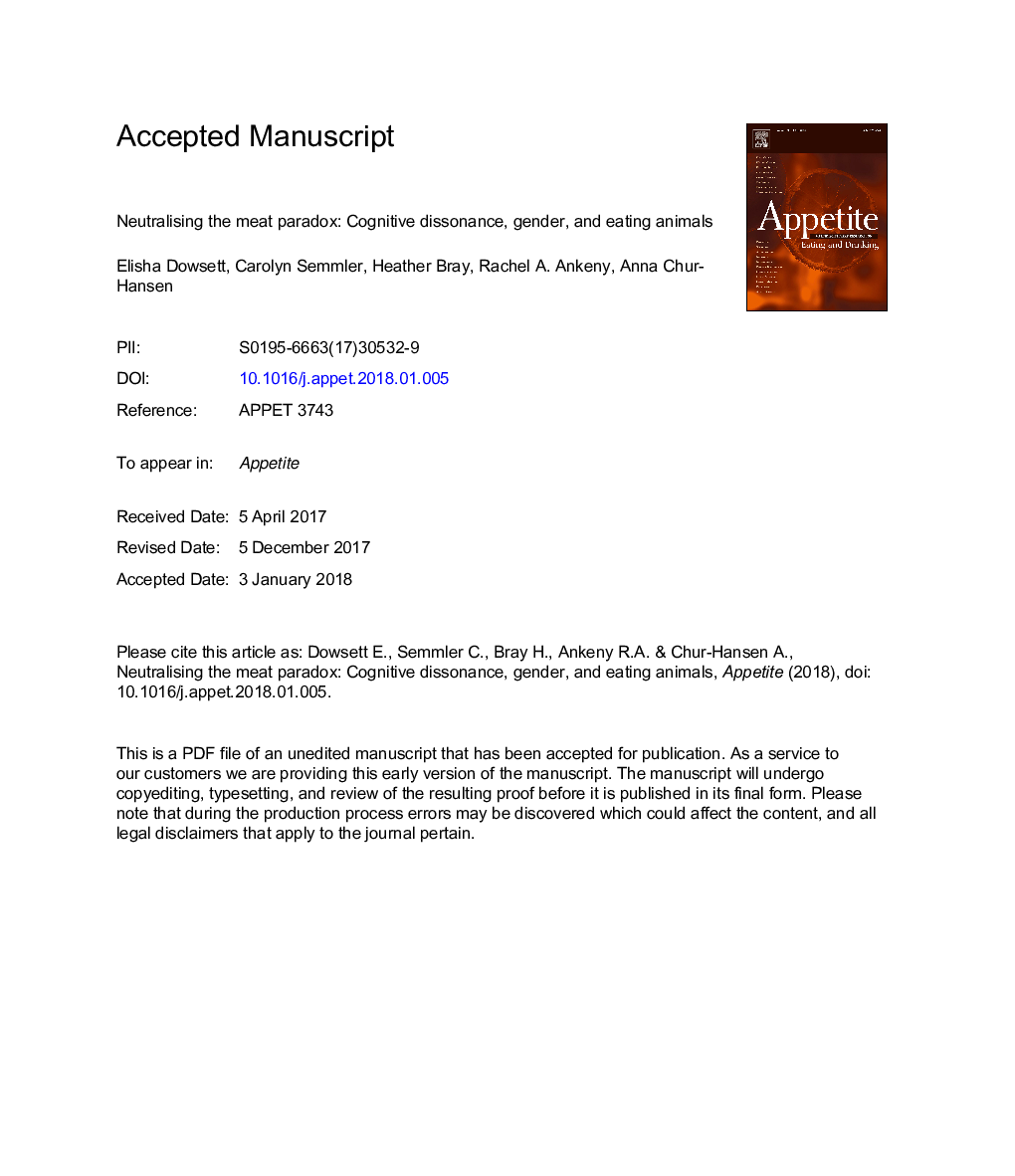| کد مقاله | کد نشریه | سال انتشار | مقاله انگلیسی | نسخه تمام متن |
|---|---|---|---|---|
| 7306155 | 1475357 | 2018 | 33 صفحه PDF | دانلود رایگان |
عنوان انگلیسی مقاله ISI
Neutralising the meat paradox: Cognitive dissonance, gender, and eating animals
ترجمه فارسی عنوان
خنثی کردن پارادوکس گوشت: اختلال شناختی، جنسیت و خوردن حیوانات
دانلود مقاله + سفارش ترجمه
دانلود مقاله ISI انگلیسی
رایگان برای ایرانیان
کلمات کلیدی
مصرف گوشت، اختلال شناختی، تفاوت های جنسیتی،
موضوعات مرتبط
علوم زیستی و بیوفناوری
علوم کشاورزی و بیولوژیک
دانش تغذیه
چکیده انگلیسی
Meat eating is a common behaviour, despite many people claiming to like, love, and care about animals. The apparent disconnection between not wanting animals to suffer, yet killing them for food, has been termed the 'meat paradox.' In this experimental study (Nâ¯=â¯460), participants completed pre-affect, post-affect, meat attachment, and attitude towards animals questionnaires, under two conditions: exposure to the life of an Australian meat lamb, and information about the nutritional benefits of meat. A factorial MANOVA revealed that negative affect was significantly greater when participants were exposed to the meat-animal connection; however, more entrenched attitudes towards animals and attachment to meat remained unaffected. Significant gender effects were found across all variables: most notably, meat attachment differed according to gender, decreasing in women and increasing in men when exposed to the meat-animal condition. Open-ended responses were subjected to content analysis to understand participants' future meat-consumption preferences and accompanying reasoning strategies. Findings from the present study contribute to understanding how cognitive dissonance and inconsistencies are rationalised by meat consumers.
ناشر
Database: Elsevier - ScienceDirect (ساینس دایرکت)
Journal: Appetite - Volume 123, 1 April 2018, Pages 280-288
Journal: Appetite - Volume 123, 1 April 2018, Pages 280-288
نویسندگان
Elisha Dowsett, Carolyn Semmler, Heather Bray, Rachel A. Ankeny, Anna Chur-Hansen,
